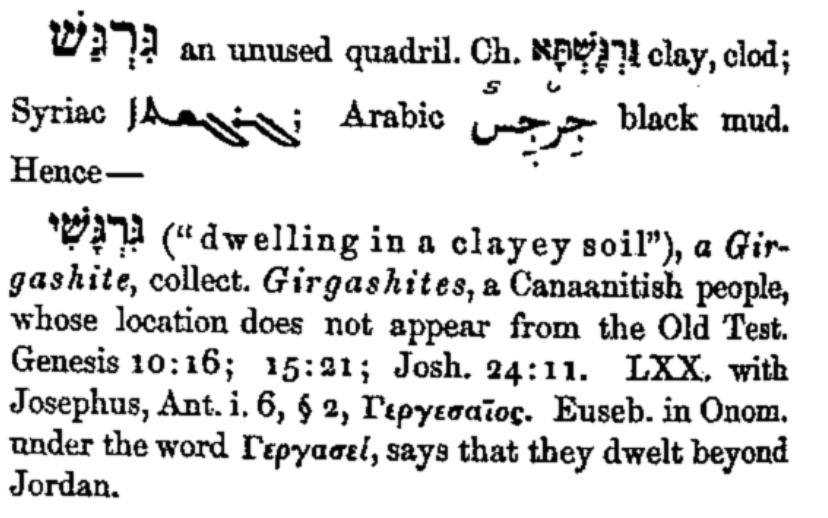 Genesis 10:16
Genesis 10:16

and the self eternal Trampler, and the self eternal Westerners, and self eternal Black Slime Dwellers,
And the Jebusite, and the Amorite, and the Girgasite,
and the Jebusite, and the Amorite, and the Girgashite,
and the Jebusite, and the Amorite, and the Girgashite,
Footnotes
| 391 | Genesis 10:16 Hebrew יבוסי yebusi. A Jebusite from Jebus meaning "treading place, place of trampling," Strong’s #2982 and #947, boos. To tread down, trample. |
| 392 | Genesis 10:16 Strong’s #567, Emori. Or Amorites. From #559, Westerners. These are the most prominent of Humbled (Canaan) and are noted as dwelling in the “mountains.” See Numbers 13:29; Deuteronomy 1:7,19. The term אמֹרי (’Ĕmōrî, “Amorite”) in Biblical Hebrew reflects the Akkadian ethnonym Amurrû, which in Mesopotamian usage denoted both (1) a geographical direction, “the west” (i.e., the lands west of the Euphrates, especially the Levant), and (2) a population group, the “Westerners” or Amorites. In Akkadian sources from the Old Babylonian period (early 2nd millennium BCE), Amurrû designates not only the Amorite tribal confederations but also a territorial entity and even a deity personifying the western lands. The Hebrew form אמרי thus preserves the Mesopotamian perspective in which the Amorites were “westerners” relative to Babylonia and Assyria. Despite superficial resemblance in spelling, אֱמֹרִי is etymologically unrelated to Hebrew אִמְרֵי (“sayings, words”) from the root אמר (“to say”). |
| 393 | Genesis 10:16 Strong’s #1622. Girgashites. From גרגשׁ black mud, slime. Cf. Fuerst, Gesenius. |
